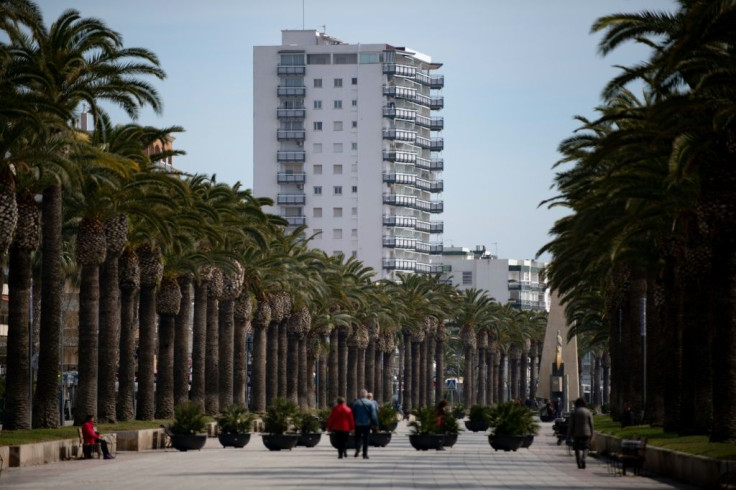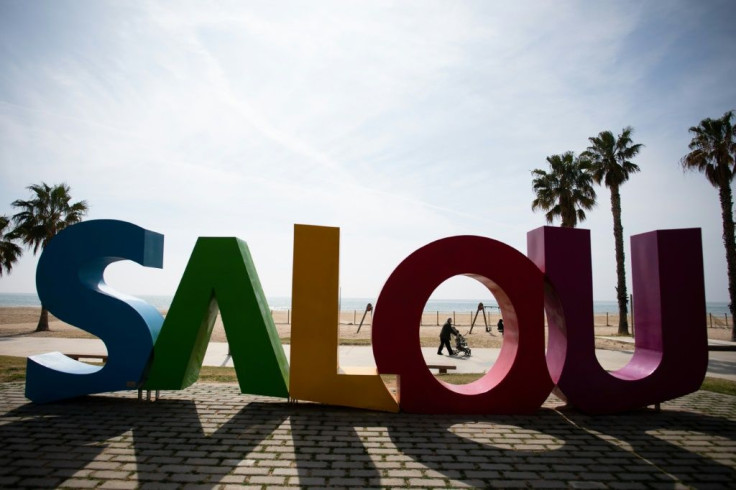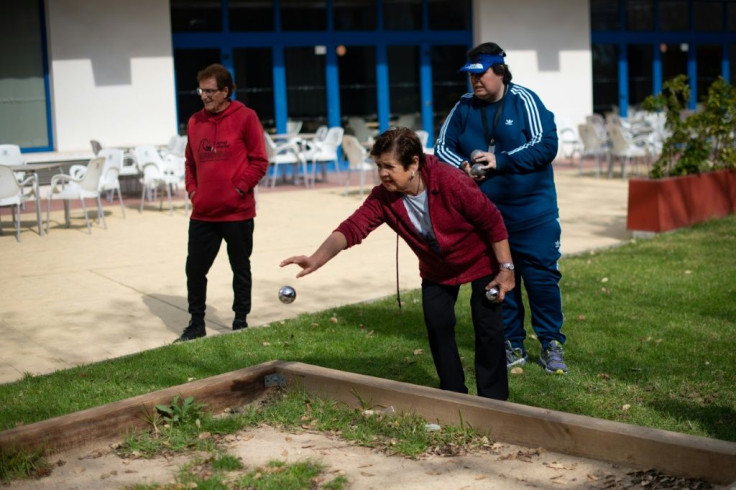Virus Empties Spanish Resorts Of Elderly Tourists
On Spain's Costa Dorada, the Hotel Piramide would normally be heaving with its annual influx of older visitors who regularly come for a spot of welcome winter sun.
But things are different this year following the cancellation of a popular holiday scheme for seniors over the coronavirus crisis.
"We started the year really well but overnight all that changed and the hotel is practically empty," sighs David Rodriguez, director of the hotel, one of the few still open in the resort town of Salou, about 100 kilometres (60 miles) down the coast from Barcelona.
As the number of infections has soared, Spain implemented a string of restrictions to slow the spread of the virus, one of which was to scrub a state-sponsored scheme of cheap, low-season getaways for pensioners.

Set up in 1985, the programme is hugely popular, attracting around 800,000 participants every year who enjoy a week with meals at one of numerous destinations within Spain for around 200 euros ($220).
At hotels like the Piramide, a typical complex with pools and sea-facing balconies, these visitors keep businesses going through the lean months of winter.
The town, with its 26,700 residents and Port Aventura theme park, lives off tourism, both national and international, welcoming a regular stream of visitors from Britain, France and Russia.
But from March until Holy Week, which this year is the second week of April, the entire complex is filled with older Spanish tourists, Rodriguez says.
By now, the hotel would normally be 80 percent full. But facing at least a month of cancellations, everything has changed, with occupancy expected to reach around 15 percent, he said.

And the uncertainty has gripped the entire Spanish tourism sector just three weeks ahead of high season which normally moves into top gear with the Easter holidays.
"Holy Week is the beginning of the season. A bad Holy Week will be a bad start," says Mar Farriol, owner of Goretti, a restaurant on the waterfront.

"The uncertainty is affecting all of us. Not only the restaurants but the economy in general. We are all waiting to see how things pan out," she says.
Even major players are preparing for the worst in Spain, the world's second-most popular destination where tourism is key to the economy.
"We've never had a crisis like this, such a sudden, widespread drop in activity," says Cesar Gutierrez, president of Fetave, which represents the travel agency sector.
"Right now, we are hardly seeing any income, we have a very serious problem of liquidity. If the government doesn't take steps now, many of us will struggle to survive," he said.
For now, the government has pledged to plough 400 million euros in liquidity into the hotel and tourism sector.
At the Piramide hotel, a few guests can be seen playing petanque outside, chatting in the restaurant or walking through the semi-deserted streets, past empty apartment blocks or closed shops and bars.
"We're fine here, there are hardly any cases. But I want to go home to be near my family, just in case," explains 76-year-old Manoli Sabido.
She and her husband Ramon Moreno are regulars on this programme and had planned another trip in May although they are unsure if the programme will be back on track by then.
"We have to put down the deposit but we don't know what to do," he said.
Others have cut short their holiday in the face of the rapid spread of infections, which now number more than 4,200 in Spain, alongside 121 dead, and which is now moving to impose tighter and tighter restrictions across the country.
One of them is Paulo Arruarte who, along with a group of friends, has just packed up his car and is preparing to go home a day earlier to San Sebastian on Spain's northern coast, which has been badly hit by the virus.
"All the activities we had planned have been stopped or restricted. We're not doing anything here, so we have decided to go home before they close off our city," the pensioner said.
© Copyright AFP 2024. All rights reserved.





















